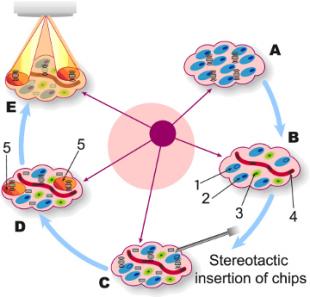IMPACT must integrate radically new sensors on silicon with the instrumentation, control and communications that they require. The final choice of sensor technologies will depend upon;
- sensor responses and calibration
- the size of the implanted device
- techniques to place sensors on standard chips
- chip "packaging" technology for long term implantation
Initially, the system will be developed as a set of individual chips. The final system will integrate sensors, instrumentation and communications on a single device.
Project Website:
Principal Investigator:
Last modified:
Thursday, May 13, 2021 - 16:34




